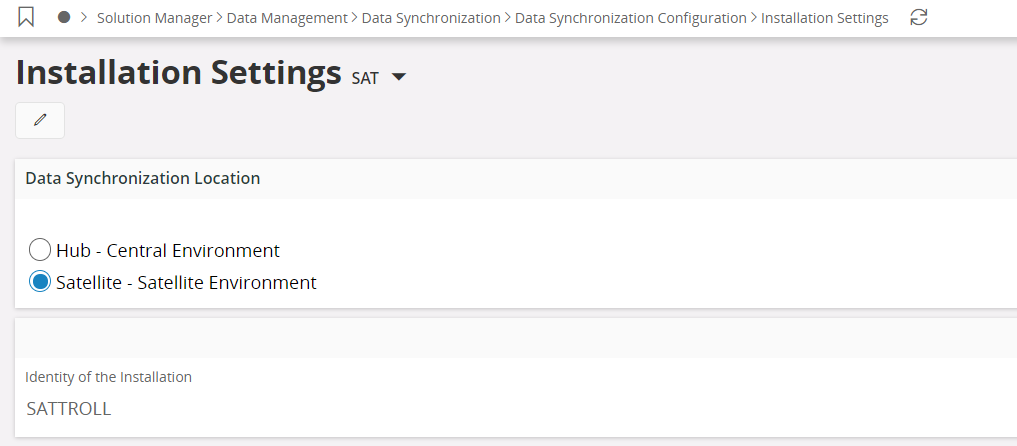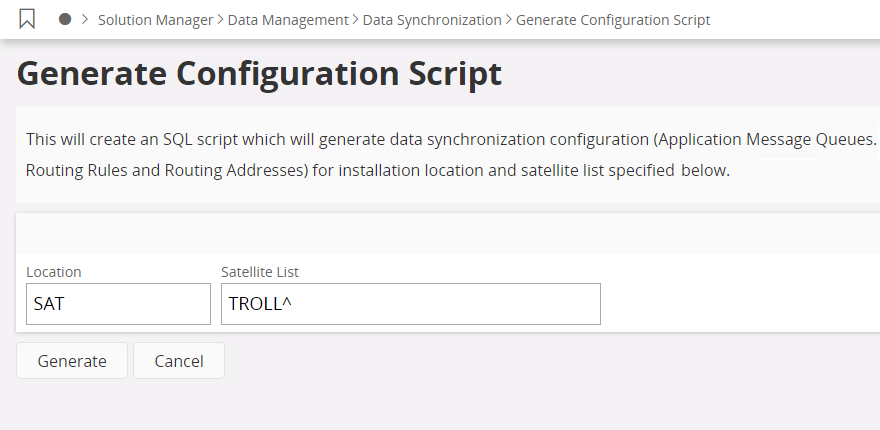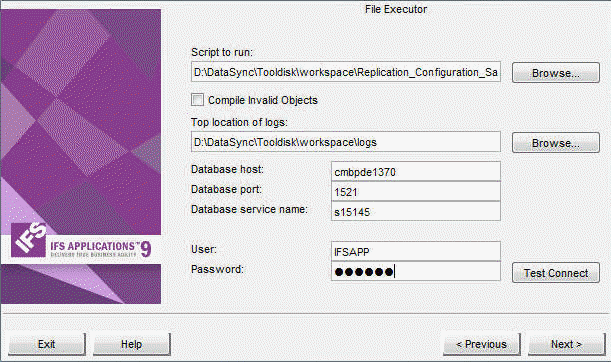Configure Satellite¶
This page defines the way of configuring a Satellite to communicate with Hub.
Note: The permission set FND_SYNCADMIN should be granted to the user who do the Data Synchronization Configuration.
Installation Settings¶
Installation Settings contain information which is used as initial configuration to create all the message queues, routing rules and routing addresses required for sending/receiving data to/from the satellites, together with Satellite Configuration.
 Figure 1 - Installation Settings page
Figure 1 - Installation Settings page
- Navigate to Solution Manager\Data Synchronization\Data Synchronization Configuration\Installation Settings page
- Toggle radio button for Data Synchronization Location to Satellite
- Save.
The field "Identity of the Installation" in window Installation Settings will be automatically generated as SAT <SATELLITE_NAME>
Setting up Satellite Site Configuration¶
With Installation Settings completed, next step is to set up satellite configuration.
- Navigate to Solution Manager\Data Synchronization\Data Synchronization Configuration\Satellite Configuration page
- Configure satellite and sites in Satellite Configuration page
- Save.
Generating Configuration Script¶
When generating configuration script, it gathers satellites and location information from Satellite Configuration and Installation Settings respectively and generate a SQL script. That particular SQL script contains a method call to generate application message queues, routing rules and routing addresses.
- Navigate to Solution Manager\Data Management\Data Synchronization\Generate Configuration Script\'Generate Configuration Script' assistance
- Installation Location and Satellites information are auto filled from the values gathered from Installation Settings and Satellite Configuration respectively.
- Generate and Save the script.
 Figure 2 - Generate Configuration Script page
Figure 2 - Generate Configuration Script page
Executing Configuration Script¶
Execute the generated configuration script using the file executor option in installer.cmd which is located in <IFSHome>.
 Figure 3 - File Executor
Figure 3 - File Executor
During the execution, message queues, routing rules and routing addresses should be created as below.
| Queues | Following queues should be generated for normal data and LOBs.
Other than those queues, REPL_OUT_SERV queue should be created for sending statistics of satellite itself to hub. |
| Routing Rules | Following inbound routing rules should be created. Routing Rules |
| Routing Addresses | Following Routing addresses should be created. Routing Addresses |
Note: Sending routing addresses are generated with dummy URLs. Because of this, it is required to set URL of the Hub in sending routing addresses manually.
Data Sync Process Settings¶
It is required to configure the six parameters defined in Data Sync Process Settings